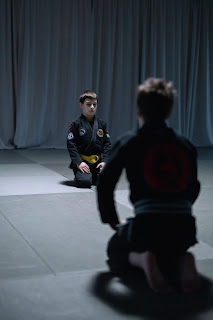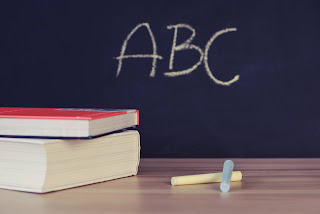How Self-Discipline Helps Kids In Their Life?
It is a question that every parent has at some point. The answer may not be as straightforward as one would think. Self-discipline is the ability to control oneself and make decisions with reason rather than emotions or impulses. It can help your child every day of their lives.
For example, self-discipline helps children learn how to work hard and become more successful learners in school. They also learn how to control themselves better if they have anger issues or other destructive behaviors like biting nails or picking skin; it helps them stay calm and focused on what they need to do next for homework.
On the surface, self-discipline may seem like a challenge or something burdensome. However, self-discipline can be one of the most beneficial skills for children to develop as they grow up and face many challenges in life.
This article will explore how being more disciplined is suitable for kids from an emotional standpoint and then provide tips on what parents can do to help their children learn self-discipline.
Let’s get started!
Why Is Self-discipline Important For Kids?
Self-discipline is essential for kids because it helps them avoid temptation. Children without self-control are more likely to have unhealthy foods or sweets, neglect to try vegetables, take their clothes off in public places, argue excessively with people they should respect, and refuse to play with other children who don’t meet specific standards of friendliness or dress code regulations.
Self-discipline is also crucial because it teaches children that taking responsibility for personal actions leads to positive outcomes while blaming others leads only to disadvantages. Getting more self-disciplined is more straightforward when dealing with food if you start by preparing what you know your child will eat and always make some healthy choices within easy reach.
Tips For Parents To Make Kids Disciplined
For every parent, the most crucial thing they want is their child to be a good person. Yet, many parents have been asking themselves how they can raise responsible children. The best way to do this is by making them disciplined.
But what exactly does it mean to be a disciplined child? When we say a child is disciplined, they know how to behave appropriately according to their age and status in society.
There are several tips for parents on how they can discipline their children successfully:
1. Put him in front of you during communication:
Shoulder-to-shoulder communication creates intimacy between you and your kid; Eye contact should also be made when feeling the need to make things clear. It shows you are serious when disciplining him.
2. Spend time with your child:
Spending time to play with your child gives them a sense of belonging and well-being, making them feel loved. Also, during one-on-one conversations, a parent can hear what his child is genuinely thinking about the matter in question or any problem that concerns him.
3. Show interest in your kid’s activities:
The interest shown by parents empowers children to talk more about themselves and their lives. It creates an opportunity for parents to have a peek into the life of their children; it also provides parents insights into whom their kids’ friends are. Listen intently rather than just looking at what is going on around you.
4. Make him understand his mistake:
It is not enough to discipline him if he does something wrong. At some point, you have to tell him why what he did was wrong and how it will affect the surrounding people. Make sure that you do this calmly and with conviction so as not to confuse your child with mixed signals of emotions such as anger and guilt.
5. Make punishment reasonable:
Inconsistent parents train their children not to listen to them anymore because disciplinary actions are very harsh or lenient. So, when administering punishment, always make sure that you consider the age and personality of your kid (i.e., a punch on the back for a rebellious teen may be too much). Also, never forget to impose the penalty right after the act has been done so that your kid can see for himself his mistakes.
6. Don’t be a buddy:
Parents should not interfere with kids’ business all the time (e.g., when they play online games). As much as possible, let them do things on their own to develop independence; but at the same time, make sure that you check what they are doing to gauge whether it is appropriate based on their personalities and age.
7. Do not mix discipline with love:
Parents should remember that disciplining children does not mean you stop loving them; instead of giving up because of this, parents should try spending more time with their children by talking to them whenever there’s any problem regarding behavior or whatever affects the kids.
8. Be a good role model yourself:
The best way to train your children is by having them see you as an example of the kind of person they should be, so always show respect and love whenever you can.
There are no shortcuts to parenting; it only requires the mother and father’s patience and willingness to spend more time with their children. Making them disciplined will surely pay off because, in return, they will grow up to become good people who can help improve society.
Conclusion
It has been scientifically proven to improve children’s cognitive skills and emotional intelligence while also reducing the risk for harmful behavior like substance abuse or depression. Along with these benefits, it can also help your child become more successful in school and at work by increasing their ability to stay focused on tasks until they are completed.
No matter how you choose to implement this trait into your parenting style, know that there will be many positive results if you commit yourself to teach your kids about discipline early on in life!
In case if you are having a problem. Contact BaaBee TV for any questions or concerns you may have about implementing these tips into your family routine.




Comments
Post a Comment